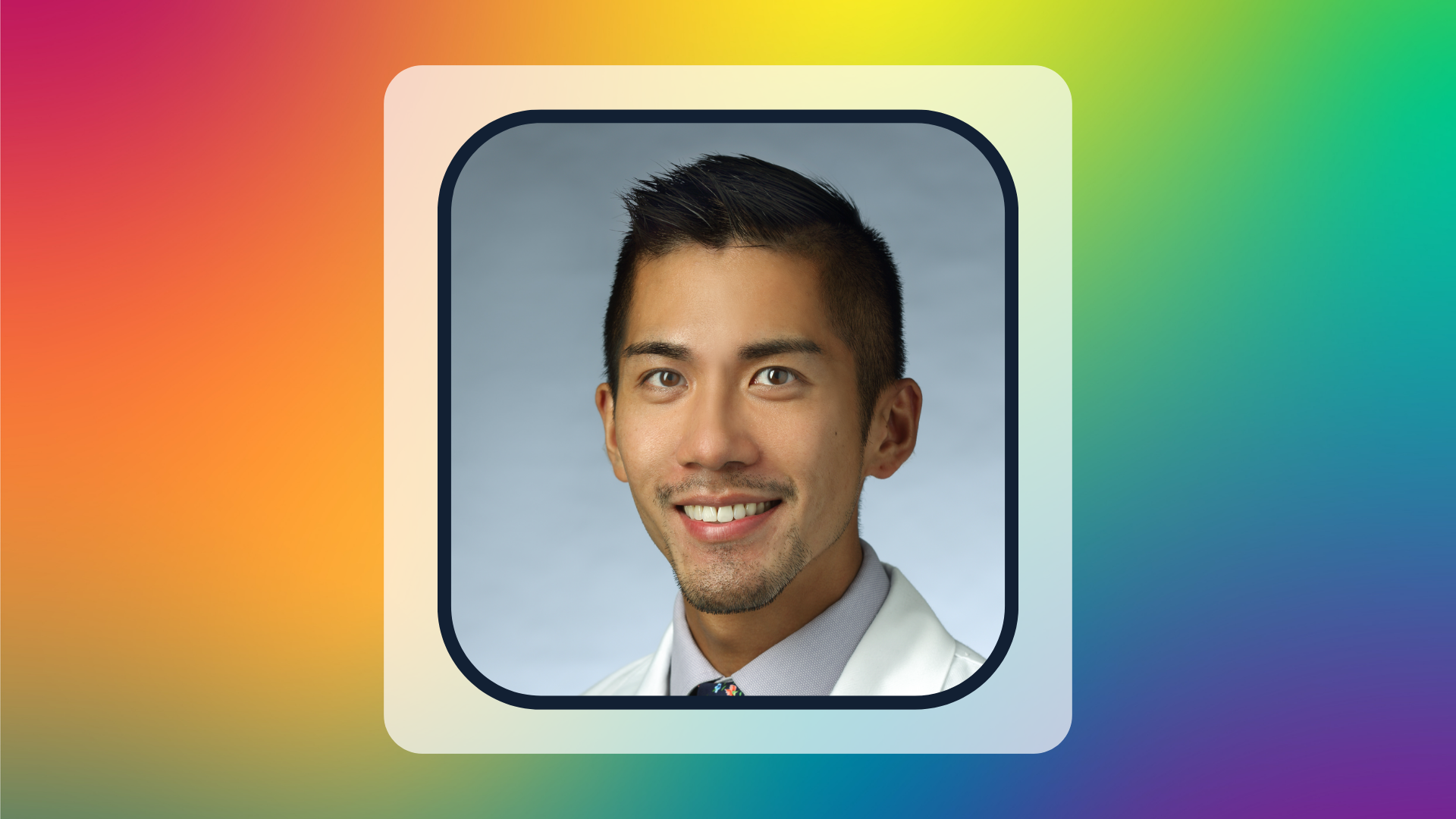Nikki Duong, MD, is a third-year dual-pathway gastroenterology and transplant hepatology fellow at the Virginia Commonwealth University in Richmond. Dr. Duong is a co-founder and member of the executive board of Rainbows in Gastro. He is passionate about medical education, mentorship and quality improvement initiatives in patients with alcohol associated liver diseases. He will be starting as a clinical assistant professor of medicine at the Stanford University Medical Center this fall.
Q: Please introduce yourself and your area of contribution to the LGBTQIA+ community of physicians and patients.
I am a first-generation Chinese American born and raised in Maryland. I am the first physician in my family. I am also the first openly gay man in my family. To say that my upbringing was a challenge is an understatement. I quickly realized that to provide the best care for patients from all walks of life, I had to understand my own story and my own “walk of life.”
Being comfortable in my own skin and being proud of who I am took years to accept. I personally have been subjected to discrimination and uncomfortable comments about my sexual orientation as a trainee. I live each day having to recall these events. I live each day knowing that the next day will be better for all trainees and medical providers. It’s not a sprint but rather a marathon for “us.” We, as sexual and gender minorities, stand together and will continue to create a positive change in the culture of medicine. I sit here writing this today, because I care about ensuring that our culture shifts, and we continue to move the needle forward in a direction that focuses on inclusivity and one that embraces uniqueness.
Q: What have been your major accomplishments and what obstacles have you faced?
I am most proud of being one of the founding members of Rainbows in Gastro (RIG). It really is proof that with a vision and passionate people who share common ground, a lot can be accomplished! Our group has taken off tremendously and done incredible things in our short period of existence. We’ve published articles, advocated for our patients on a societal level, led symposia at national conferences and have grown our membership base tremendously and hosted multiple networking events and educational webinars.
It’s difficult to find time to grow this type of affinity group when there are other competing interests (namely, being a fellow and in training). But, realizing what makes me happy and gives me pride has truly helped me find time for RIG! It also has been a challenge because interest in LGBTQ+ health disparities is a relatively recent concept, and let’s just say, not so traditional. Because of this, it has been difficult to sometimes get buy-in and to get others excited about this topic or even to understand its critical relevance and importance.
Q: What do you envision for the future of the LGBTQIA+ physician workforce and for patient care over the next five years?
I hope that providers continue to practice culturally sensitive care with humility and kindness. I hope the physician workforce continues to grow and diversify which mirrors the populations we treat. Patient care is compromised when financial and political motives are involved. A future void of these external factors would help secure a safe space where all patients can achieve health equity.
Q: What inspirational advice would you offer to LGBTQIA+ trainees, medical residents and students?
Life is tough, but it’s what you make of it. Take the high road. Be yourself. Don’t succumb to the norms that society and medicine often set for us. As trainees it can often be intimidating to speak up but you have rights and protections. Don’t dim your light. Shine on!
Q: What advice regarding empathetic care would you like to share with the field of GI?
Mistakes happen, and no one is perfect. It’s important to acknowledge this and be overtly (but genuinely) empathetic. Patients want to feel that they are in good hands and in a safe environment. This requires providers to have strong emotional intelligence. Read the room, listen, make solid eye contact and admit when you don’t know something but want to learn more about someone!












